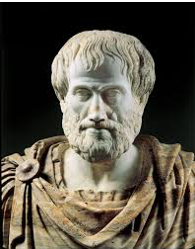Mission Matters #61 – Intellectual Traditions of the UIndy Faculty in Business

This year we are exploring intellectual traditions associated with UIndy’s schools and colleges. In this case, the focus is on the disciplines in the School of Business. The first part of Dr. Karl Knapp’s article introduces the academic disciplines. The next issue of Mission Matters describes the core pedagogy of the School of Business.
Introduction by Michael G. Cartwright, Vice President for University Mission
Karl Knapp’s two-part essay about intellectual traditions of the School of Business reminds us that the collection of disciplines represented in the faculty of the School of Business are related to certain disciplines in the Shaheen College of Arts & Sciences. From where I sit, Prof. Knapp’s commentary isn’t so much an apologetic argument as it is a helpful orientation to the capacity of the UIndy faculty as a whole.
Seven students were enrolled in the School of Commerce during the 1905-1906 academic year. Within a few years, it became clear that there was not sufficient enrollment to have separate schools, but this particular program was tied to Indiana Central’s self-image as a university. So the School of Commerce was retained despite the fact that it was not functional at that point in the institution’s history.
Guston P. Roberts was the first person to teach business at Indiana Central. He came to the role after teaching the previous year in a similar role at Central College in Huntington. Although he was an experienced teacher, he did not have specialized training in one of the fields of business. The first person to teach business courses from a social science perspective was Gertrude Colescott, a graduate of Indiana University; she taught history and economics from 1909 to 1912. After the State of Indiana determined that Indiana Central was restricted to offering a “standard college” curriculum, the division of schools and the university administrative matrix were dropped.
Fred Hill reports that in the mid-1930s, students began to display special interests. Not surprisingly, the Business Club was one of many affinity groups that enjoyed growth before and after World War II. One of the changes that Indiana Central College made in order to be accredited was to develop a more significant set of liberal arts coursework. Once in place, however, Indiana Central faculty began to build specialized curricula for undergraduates.
By the 1970s, the Graduate Business programs developed an MBA, which would later be offered in an Executive format on weekends. With enrollment growth over the past four decades, the size of the faculty and the range of competencies alike have expanded. -MGC
The Academic Traditions of Business
 by Dr. Karl Knapp, associate professor in the School of Business
by Dr. Karl Knapp, associate professor in the School of Business
This article explores the history of business in human society and the academic traditions of its disciplines of study. The conduct of business is ancient and began with the development of agrarian societies between 8,000 and 10,000 years ago. The transition from hunter-gatherer societies enabled specialization of labor and the development of expertise in farming, domestication of animals and blacksmithing to name just a few.
Specialization is key to the improvement of all productive activities. It enabled expertise to develop and accumulate over time. Specialization also presented a challenge because individuals no longer gathered everything they and their families needed. Specialization gave rise to the need for trade, and with it, it is possible to discern the origins of the various disciplines that make up the curricula of schools of business at UIndy and elsewhere.
The earliest form of trade was facilitated by the barter system. Individuals who specialize must trade their goods for other items they need. It’s easy to imagine the earliest negotiations with a farmer over how many bushels of wheat her goat was worth. The weakness of the barter system is that it requires a ‘double coincidence of wants’ where each trader must want what the other has at the same time. Barter consumes time and may necessitate travel. To solve this problem, the concept of money developed as a neutral medium of exchange with a commonly accepted value in society.
Money’s common standard of value enabled prices for goods to be set and negotiated. Money facilitated trade and gave rise to the development of larger markets, and ultimately, trade between societies and cultures. These tools and practices led directly to the evolution of various business disciplines.
Business is a broad term defined by Merriam-Webster as “commercial or mercantile activity engaged in as a means of livelihood” or “dealings of an economic nature”. A contemporary definition reveals that ‘business’ is a collection of disciplines that are practiced in order to enable and enhance organizational activities and economic dealings. Among the oldest of these disciplines is accounting.
Accounting
As trade markets developed there arose a need to account for the items that were being bought and sold. The counting houses in Mesopotamia employed the first accountants (who worked without green eyeshades) as far back in history as 9,500 years ago. Instead of computer systems, they used small clay objects, known as “tokens” to represent various quantities of a specific commodity.[i]

Over time accounting methods continued to develop and become more sophisticated. In the early medieval period, Jewish book-keepers in the Middle East developed the double-entry bookkeeping system. In the 1400s Luca Pacioli of Italy published the first book on the double-entry system which is the basic system of debits and credits still in use today.
In modern times, the role of the accountant has become crucial for successful businesses. Accounting and professional standards have been developed, which in the United States are overseen by the American Institute of Certified Public Accountants. The role of a modern accountant is not only to keep the books, but to gather, analyze, and present information to management so that they can make the best decisions possible for the benefit of the organization. Advanced approaches such as forensic accounting, and the utilization of tools such as artificial intelligence help to discover fraud and waste.
At UIndy, the discipline of accounting at the undergraduate level is focused predominately to enable our students to become Certified Public Accountants (CPAs). At the graduate level accounting courses are focused on providing key foundational concepts. Our colleagues in accounting include Mark Richardson, Ramiro Serrano-Garcia, Chris Miller and Vivian Xiang.
Economics
Another ancient discipline of business is economics. Economics differs from accounting in that it does not derive from solutions to specific problems (such as accounting for goods). Economics relates to, and somewhat derives from, philosophy.
Some of the earliest writings on economics stem from ancient Greece around 2,700 years ago in the time of Homer. Hesiod, Aristotle, and Plato wrote about economic thought, wealth and property ownership. Shortly thereafter, philosophers in China and India were also examining economics. From the middle ages until today, philosophers have considered and proposed a variety of economic models that become schools of economic thought. Economics is among the first of the social sciences.
In modern economics, philosophies and schools of thought are still at the center of the debate. The availability of vast amounts of economic data enables the utilization of the scientific method to rigorously test economic theories and hypotheses. Game theory combined with advances in psychology (see Kahneman and Tversky) has led to the development of the field of behavioral economics, studying economic choices made by individuals. The disciplines of marketing and management have also been greatly affected by the field of psychology.
In many liberal arts colleges, the primary opportunity students have for exposure to business concepts is in the area of economics. These courses usually include topics in microeconomics and macro-economics with historical and comparative analyses. At UIndy, the discipline of economics provides key foundational knowledge for both the undergraduate and graduate programs. Our colleague Tim Zimmer and Dean Larry Belcher have terminal degrees in economics.
Marketing
As with the other fields, the practice of marketing has a long history. Over 2,000 years ago manufacturers were already utilizing advertising, branding, and packaging techniques to help attract customers and sell their goods. In the 1700s sophisticated approaches to reach mass audiences (mass marketing) were developed in Europe. The techniques of product differentiation, market segmentation, sales promotion, and complex pricing models have been in use for hundreds of years.
The modern definition of marketing involves “creating, communicating, delivering and exchanging offerings that have value…” [ii] In simple terms, marketing involves product design, promotion, pricing and placement in the marketplace.
The modern discipline of marketing draws upon foundational concepts of perception, graphic art, psychology, group behavior, and individual decision making to name just a few. As with most of the other business disciplines, mathematics and statistics are heavily used, especially with the advent of ‘big data’. The recent explosion of social media has enabled promotional strategies that ‘narrowcast’ to highly specific target market segments. These advancements also raise ethical dilemmas regarding society, individual rights, and governmental oversight.
At UIndy, the discipline of marketing includes undergraduate degrees in both marketing and a specific application area, sports marketing. At the graduate level, marketing is both foundational, and also a part of our certificate areas in the MBA program where we offer advanced courses in a subject. Our colleagues Kathy Bohley, Larry DeGaris and Cathy Zhang are our scholars in the area of marketing.
Finance
Finance goes hand in glove with the history of money. As individual producers combined into collectives or evolved into other complex organizational structures, they need funding to achieve their goals. Finance is “the system that includes the circulation of money, the granting of credit, the making of investments, and the provision of banking facilities” (Merriam-Webster, 2020).
 Financial systems have come a long way from Mesopotamian shekels, cowry shells and the earliest minted currency of silver and gold 2,600 years ago in Asia Minor that was used to pay armies.[iii] Today, societies primarily use government-backed fiat currencies whose value is influenced by central banks who employ economists and finance professionals to guide changes in the systems and investments by organizations.
Financial systems have come a long way from Mesopotamian shekels, cowry shells and the earliest minted currency of silver and gold 2,600 years ago in Asia Minor that was used to pay armies.[iii] Today, societies primarily use government-backed fiat currencies whose value is influenced by central banks who employ economists and finance professionals to guide changes in the systems and investments by organizations.
The field of finance draws on the fields of mathematics, statistics, and psychology. Complex investment vehicles, global trade, valuation of assets and organizations, the banking system, financial regulation, behavioral finance and innovations such as cryptocurrencies are all at the forefront for the finance professionals today.
At UIndy, the discipline of finance includes an undergraduate degree in finance. At the graduate level, finance is foundational and also part of a certificate area in the MBA program with advanced courses in finance. Our colleagues Matt Will, Rachel Smith, Associate Dean Steve Tokar, and Dean Larry Belcher are our leaders in the area of finance.
Management
Management is the art of getting things done through people. It seems clear that as soon as we developed social strata and began to cooperate as a species, the practice of management had begun. Theories on leadership have long been a part of the discipline. As trade has become more global, the role of international business has taken on an increasing level of importance. Managers must work with organizations and people from a variety of countries in order to manage the global organizations of today.
The discipline of management primarily draws upon the fields of psychology, anthropology, and sociology in an attempt to answer questions such as: How do we get people to work together? What systems, structures, environment, culture or incentives lead people to perform at their best? How do we work with others from various countries, cultures, and religions? These continue to be important questions.
At UIndy, the discipline of management includes foundational courses and an undergraduate degree in management. At the graduate level, management is both foundational as well as the central focus of a master’s degree in management (MSM). Our colleagues Terry Schindler, Dex Gruber, Darrell Cousert and Ron Ackerman are scholars in the area of management. UIndy has also grouped our foundational courses in business law under the area of business administration and management where Steve Maple and Dex Gruber both hold Doctor of Jurisprudence degrees.
Information Systems, Data Analytics, and Supply Chain Management
The fields of information systems, data analytics, and supply chain management are born from the advent of the industrial and computer ages. Information systems are an applied outgrowth of computer science, focused on computer systems, software, and networks for the analysis and distribution of data. Data Analytics looks at how data and information can be used to improve decision making in the organization.
Similarly, supply chain management is a business-focused extension of industrial engineering. The basis for the supply chain derives from foundations in mathematics, statistics, engineering, and management.
At UIndy, the discipline of information systems and data analytics provides both undergraduate and a new graduate degree for UIndy students as well as providing foundational knowledge for both types of degrees. Our colleagues Jerry Flatto, Ally Snyder and Gary Mercado teach and research in these areas.
In the discipline of supply chain management, we offer both an undergraduate degree and an MBA certificate with advanced courses in the area. Karl Knapp, Craig Seidelson and Mary Ann Sanchez all are scholars in supply chain management.
Entrepreneurship
Lastly, another all-encompassing area of business is entrepreneurship. Entrepreneurship is the study of the creation of new business and organizational ventures. As such, the study of entrepreneurship involves engagement in all of the disciplines of business, focused on new and small organizations. Entrepreneurship is one of the undergraduate degrees offered by UIndy. Our colleague Marcos Hashimoto is a scholar in the area of entrepreneurship.
A Diverse Collection
As can be seen from this brief overview, the various fields and disciplines of business are highly diverse. Each of these disciplines has distinct fields of study and unique terminal degrees.
Taken together, business is akin to arts & sciences in that there is a wide array of knowledge and skills encompassing the group. Many dissertations and published research in economics and finance, methodologically resemble publications on mathematics. In the areas of marketing and management, research can look more akin to sociology or psychology in its structure and methods. Even with a diverse array of disciplines, there is a common focus in the area of application: society and organizations related to commerce and service to society. The inherent focus of a business school includes both for-profit and not-for-profit organizations. The application of best practices in the areas of ‘business’ applies equality to charities, schools, churches, hospitals, Eli Lilly and the Motor Speedway.
In Part Two, now that the diversity in our school has been explained, I will describe how the faculty in the School of Business engage students in the context of our core pedagogy: applied learning. Part Two will also discuss the scholarly agendas of the business school faculty.
_______________
[i] Swetz, F. Mathematical Treasure: Mesopotamian Accounting Tokens. Mathematical Association of America website: maa.org.
[ii] American Marketing Association (2017). Definitions of Marketing.
[iii] Kusimba, C. (2017) When Did People Start Using Money? Discover Magazine.
_______________

